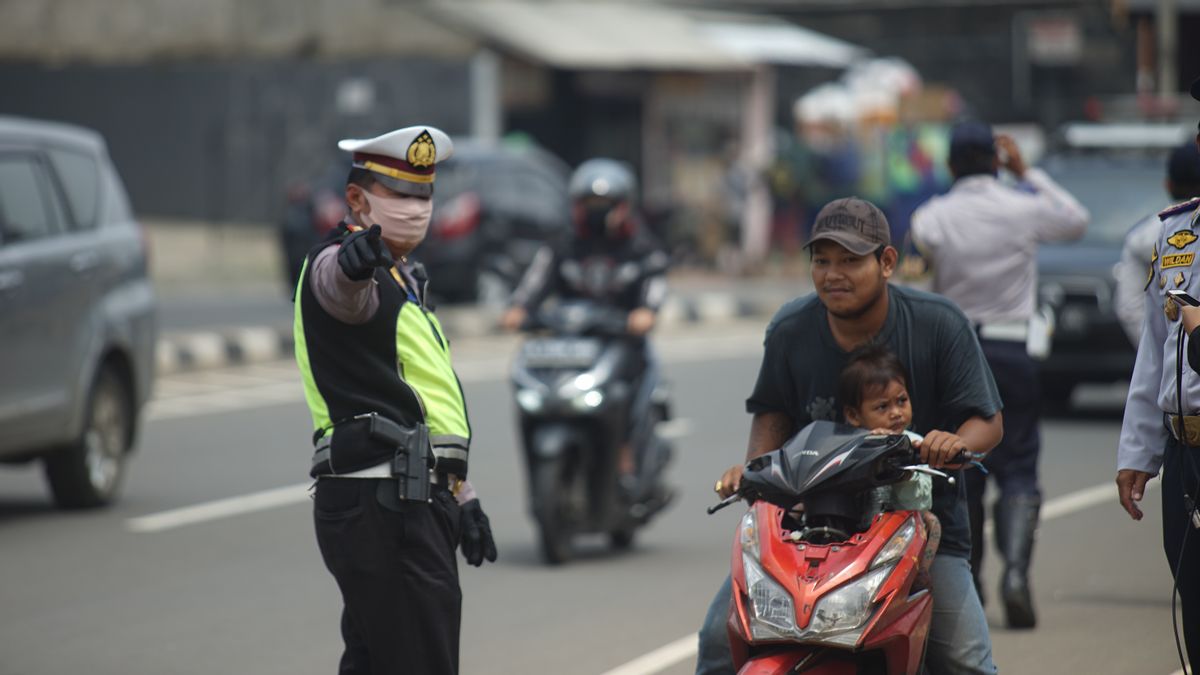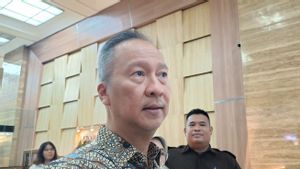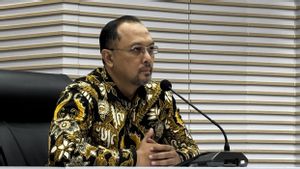JAKARTA - Chairman of the Task Force for the Acceleration of Handling COVID-19, Doni Monardo, said that a number of areas implementing the Large-Scale Social Restriction (PSBB) policy experienced a significant reduction in hospitalized patients, including in the DKI Jakarta area.
"We have said that for DKI it is below 60 percent. This means that the number of patients treated at the referral hospital from the Ministry of Health or those that have been determined by the provincial government has decreased," said Doni in a press conference after a limited meeting regarding the evaluation of PSBB which was broadcast on a YouTube account. Cabinet Secretariat, Tuesday, May 12.
Apart from DKI Jakarta, Doni also mentioned the implementation of the PSBB which was considered successful in the West Sumatra region. From the data it has, the number of patients treated at RSUP M. Djamil, Padang was recorded that out of the 112 cases provided to treat positive patients with COVID-19, only 46 were filled.
Meanwhile in West Java, he received data from Hasan Sadikin Hospital, Bandung, that the number of patients treated was only 35 out of a total of 135 available cases.
"This shows good news because since the first, second, and third week, since the government declared a health emergency status, almost all hospitals have increased so that many of our brothers have not received treatment," he said.
Do not force PSBBEven though it is considered successful in reducing the impact of the massive spread of COVID-19, Doni emphasized that the central government does not require all regions to establish a PSBB. Doni said, President Jokowi actually freed local governments to choose the right policies to emphasize the spread of COVID-19.
"The President emphasized that the central government does not impose PSBB on regions. Regions may choose an approach that suits their respective conditions," he said.
In addition, according to him, President Joko Widodo also invited regions to take advantage of local wisdom in order to increase public compliance in implementing health protocols.
"Although it does not exist in the regions, it is hoped that the regions can optimally increase their capabilities in order to maintain community compliance with health protocols," said Doni.
Meanwhile, with regard to the easing of the PSBB, according to him, the government is currently preparing the best scenario. Doni said that this scenario was based on four criteria.
"First, efforts in the field of preconditions, namely socialization, secondly related to time or timing. The third priority is what areas are included and which regions need to be done, the last is coordination between the center and the regions," he explained.
According to him, this point regarding coordination between the center and the regions is very important. Do not let it be, when the central government asks for the easing of the PSBB, there will be objections in the regions and when the regions ask for easing, the central government actually thinks this is not necessary. "So the central and regional coordination is our priority," he concluded.
The English, Chinese, Japanese, Arabic, and French versions are automatically generated by the AI. So there may still be inaccuracies in translating, please always see Indonesian as our main language. (system supported by DigitalSiber.id)













